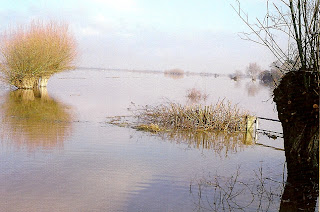The Davos World economic forum has as one of its major themes the nexus between energy, food and water. 70% of water is used for irrigation while energy is, of course, essential for water distribution. So increasing food production to cope with rising population and demand has huge consequences for water supply. Food and energy prices are on their way up and that is driving investment in new production but what about water?
There is still no real recognition of the value of water in too many parts of the world and that unless it is given a value there will not be investment. The problem is that water is still seen often as a right and that where there is no history of charging for water it is politically very difficult to introduce charging.
Just look at how difficult it is in Northern Ireland, where the inevitable effect of free water and consequent lack of investment came home with the water shortages that made the headlines over Christmas. Davos has suggested that one of the key levers for action is to introduce: “market led natural resource planning” which roughly translated means being prepared to pay for water.
Until politicians are prepared to grasp this issue – the problems of water scarcity will continue.





